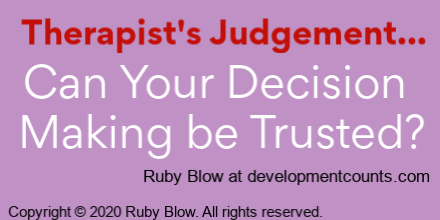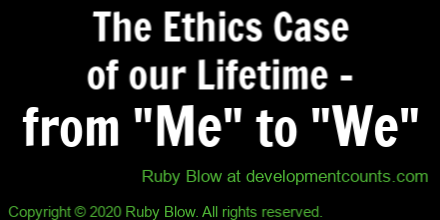Freedom of Belief
One of things for which I am most grateful is living in a time and place that supports freedom of religion…which, to me, translates to freedom of belief. I’m not sure how I would survive in any other place or time. I am first and foremost an independent thinker and a questioner. I am a lover of freedom…the freedom to act and think and believe and be just as I am…without interference…without rules that bind. I prefer structure that allows…over rules that threaten to squash my identity.
Religion, Cultural Identity and Family
I am very aware that people have presumptions about my faith or beliefs because I am a black woman in the South. The content in multicultural and diversity courses about African Americans includes a focus on collectivism, extended family, religion and matriarchy…among a few other topics.
I grew up in the Baptist Church…a black church in the South with a wonderfully honorable, powerful and gentle leader, Reverend George MacCalep. I went to vacation bible school in the summer and attended church most Sundays at the guidance of my mother. My father did not attend church but he could quote the bible because of all of the time he spent at church in his youth. He also had a photographic memory and quoted Edgar Allen Poe, Shakespeare, Langston Hughes and many others. I don’t know his specific beliefs and it never mattered to me what they were. What I admired was that he was a good person and he rarely did things he didn’t want to do that he didn’t have to do.
In my mid- to late-teens I stopped attending church regularly, much to my mother’s dismay. She saw it as rebellious and possibly even a dangerous thing to not go to church. Fear can be a big factor in the cultivation of belief. In fact, as a child, I remember being taught to “fear God” in Sunday School…that was the very day that I started to question what I was being taught. Later in my adult life I attended the Unity Church, which is based in Christian principles with metaphysical elements and the inclusion of various faith practices. It was an opportunity as an adult to revisit organized religion and develop what my spiritual mentor called “an adult relationship with God.”
In recent years, I prefer Sundays at home. I occasionally engage in daily devotional reading. I like to write in my journal with a focus on gratitude. I participate in smaller spiritual communities…gathering with people who generally espouse loving and peaceful principles for living and sometimes practice meditation and participate in ceremonial circles.
I have, of course, moral principles and guideposts; I am beholden to community and loved ones and to the natural laws of nature, the principles of cause and effect and universal principles that govern us all. Because I practice Tai Chi, I also have an interest in Taoism but I am not well versed in it. To me it is clear that there are a great many wonderful principles that can be found across many faiths.
Respect for Many Faiths
I respect all religious practices pretty evenly…I don’t value one over the other or believe one is more true. I see benefits and challenges in them all. But not for their specific tenets. To find the benefits of a practice, I look to how peaceful, loving, and gracious that practice’s particular set of beliefs are to one another and to those who don’t believe the same as them.
To understand the challenges of a faith…I look to how those within the faith respond to those who “step out of line.” What are the risk factors for abuse within this faith?
Living in the South (also known as the “bible belt”) has afforded me the opportunity to meet many people of the Christian faith including:
- Catholics,
- Baptists,
- Methodists,
- Episcopalians,
- Mormons,
- Jehovah’s Witnesses,
- Unity,
- Seventh Day Adventists, and so on.
I have also met people who practice other traditions including:
- Islam,
- Hinduism,
- Judaism,
- Taoism,
- Buddhism,
- Paganism,
- Yoruba,
- Unitarians,
- and Wiccan.
Occasionally I meet people who are atheist, agnostic, or who consider themselves spiritual but not religious.
Do Not Impose Beliefs on Others
Mental health professionals are encouraged early on in our course work to become attuned to our beliefs so that we do not impose our beliefs on others. This was never a difficult task for me. Since childhood, I have operated from a “live and let live” perspective. I have respected that people live by different “truths” and different “beliefs.” I have understood faith or lack thereof a very personal matter that is often professed publicly for various reasons.
For some it is about bringing other people into their beliefs. Still others view sharing their beliefs as a way to honor those beliefs. Some think that not sharing their beliefs is form of denying them.
Others grow up in particular religious faiths and explore other traditions as they get older and gain life experience. I generally believe that faith adds meaning to people’s lives. It gives them a foundation of values. These values are often shared and help them form and become a part of a community. That community provides support, connection and rituals. For many, their faith helps give them meaning and purpose. It provides them comfort in times of despair and brings them solace. It provides them with a set of principles for living.
Losing Faith
Because religious faith provides so much…it also can be devastating when it is lost. Sometimes people lose their faith. This can happen for many reasons…here are a few of them:
- They were operating from an underlying belief that if they led their life by their religious practices, their life would turn out a certain way…that they would get what they want and ultimately be happy…something happened (a loss or some unfulfilled purpose) that shattered that belief and they are left questioning.
- Their church leadership or fellow members have adopted, accepted, or allowed a set of harmful principles to direct the teachings of the faith. The person could not incorporate those beliefs as their own…perhaps because it would mean disowning an important aspect of self or someone else that they love.
- They may have experienced abuses within their faith such as physical, emotional, spiritual, financial or sexual abuse.
I think that it is vital for clinicians – regardless of their beliefs – to hold a very open-minded space for clients in therapy. Most therapists I encounter do this very effectively. So much so that unless they divulge their specific religious beliefs to you…you would not know.
They have learned to honor your faith/beliefs and their own at the same time. They have learned how to respond to requests for prayer, spiritual guidance, and questions about their own beliefs. For those who are either new clinicians or supervising clinicians… here are a few recommendations or considerations in no particular order about how to address religion, faith and spirituality in therapy.
A Few Considerations on Religion and Therapy
- People with mental illness – such as anything that also includes symptoms of psychosis – can have difficulty with regard to engaging in religious practice without it be misused or incorporated in a harmful way with regard to their delusions (their fixed false beliefs) or their paranoia. They may at times become very literal and misunderstand some of the abstract elements of various religious tenets.
- Like any other topic in therapy, it is vital to understand someone’s history and experiences prior to responding to requests for religious or spiritual guidance.
- What are their current beliefs?
- Do they have access to a minister/spiritual adviser? If not, why not?
- Are they questioning their beliefs?
- Is it important to them that you share their beliefs?
- As a Clinician, have you included anything in your informed consent about how your practice is influenced by your faith? You would do this in your informed consent specifically if you are intentionally incorporating religious principles in your practice.
- Questions for you as Therapist:
- Do you have a nuanced understanding of your own beliefs?
- Have you been in your own therapy?
- Have you had negative experiences of your faith?
- Are you able to distinguish between your issues and your client’s concerns?
- Do you find yourself thinking that your client should handle their life in a particular way based on your religious practice or beliefs…whether it is the same as your client’s or not?
- How will you handle it if the client is questioning their faith and considering leaving their religious community or changing it? What if you believe that practice isn’t doing anything wrong? What if you think that faith is abusive?
- Remember that ethics across the mental health professions say first “Do no harm.”
The Inner Life of the Therapist
As I move further into the supervising, consulting and teaching phase of my practice and life’s work…I believe that is vital to talk more and write more about the inner life of the therapist.
It is a profession that involves keeping aspects of self very private and secret…many of us ascribe to the “tabula rasa” – the “blank slate.” I think that is vital to staying on the client’s agenda during therapy to not inject one’s personal agenda into therapy. However, we are whole beings and we need to understand our whole selves to best support others in their self exploration.
I view this blog post as a sort of coming out…not in the sense of sexual preference…but coming out about my relationship to religion and to belief. People of different beliefs perceive themselves as being persecuted or under attack for their devoutness. I have found that by living in a community where people frequently proclaim their Christian faith, I talk less about my own beliefs and practices. In some cases, it is because there is no point in bringing up my beliefs to that individual and in most cases it is because I don’t want them to feel compelled to give their “testimony” or to behave with me in ways that are “indoctrinating.”
While I don’t believe that I am a persecuted minority, I do count myself fortunate that I can believe whatever I choose to believe and can change or expand my mind or spiritual practices whenever I want. I know that we all go through trials because of what we believe and it is only “right” that I stand by mine as many people I come across stand by theirs.
My Beliefs, Practices and Identity
I am a black woman in the South who is spiritual not religious…I rarely quote scripture (however I love the poetry of Ecclesiastes.) I occasionally meditate (when it doesn’t make me sleepy.) I go to church twice a year with my mom on Easter and Mother’s Day because it is important to her. At times, I find religious tenets to be oppressive (particularly regarding women); but also because I am keenly aware that my ancestors who were enslaved people were made to cast aside their faith and adopt Christianity. I recognize that as human beings, we need some way of understanding our world…organizing principles to guide us when we are lost. I believe that people are generally good even though sometimes people do awful things. I believe there is a light in all of us that must not be dimmed by the condemnation of others. I believe in freedom of religion and freedom of belief.
Copyright © 2016 Ruby Blow. All rights reserved.
Share your thoughts on Linkedin, Facebook, Twitter or log in to one of your accounts below to comment. Subscribe to my YouTube channel.





